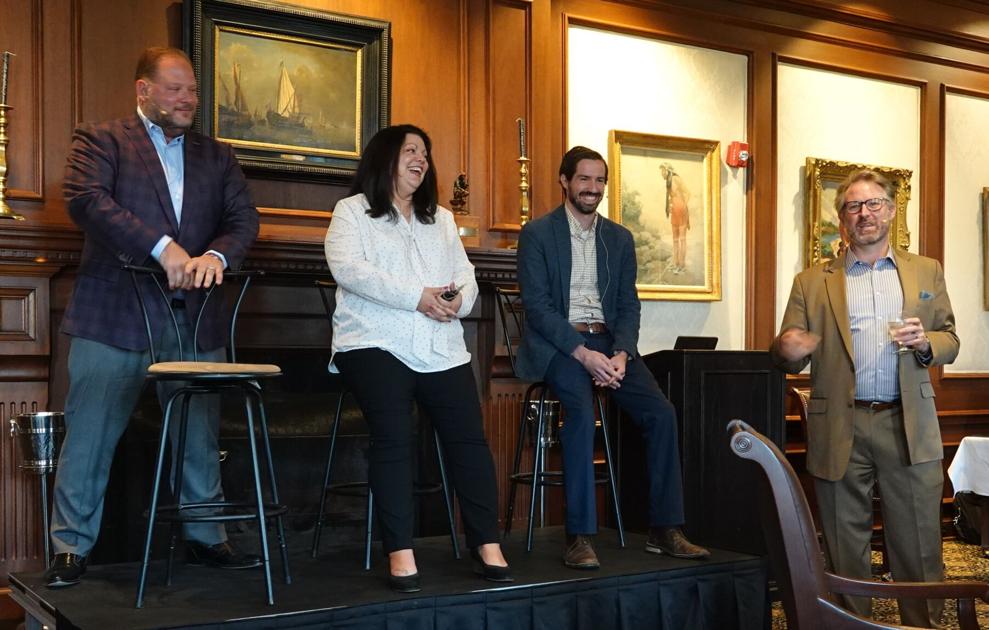Colorado Springs employers appear divided on how much remote work they want to accommodate or promote, a panel discussion at the Peak Executive Forum showed.
George Russo, director of the southern regional office of Employers Council, said widespread remote work during the COVID-19 pandemic has changed employee expectations about working in an office. He stressed that employers don’t have to choose between employees working entirely remotely or entirely in the office — many have opted for a hybrid model of some days in the office and some working remotely.
The Denver-based council provides employment law and human resources consulting services to businesses in Arizona, Colorado and Utah.
“You can still have (in-person) meetings as needed and schedule regular check-ins with your teams,” said Russo, one of three forum panelists recently discussing remote work and how to attract and retain talent as Colorado and the nation try to emerge from the pandemic. “It really depends on the company and the role of the person involved on whether employees can or should work remotely.”
Regina Dyerly, a partner and vice president of human resources and operations at Vida HR, said some potential job applicants won’t even seek jobs that don’t have an option to work remotely. Supervising remote workers, she said, takes more structure and diligence, including frequent meetings. Colorado Springs-based Vida HR provides contract human resources, payroll and other services to local and Fort Collins employers.
Younger workers tend to prefer to work remotely, while baby boomers generally would rather work in an office, Dyerly said. Those differences between generations mean that employers might need to be more flexible when recruiting talent, she said.
Robert Clennan, president of Mortgage Solutions Financial, said remote work stifled innovation in the Colorado Springs-based mortgage lender and resulted in significant losses. Without easy access to supervisor approval, some loan officers made exceptions to lending criteria that later made the loans unsaleable to investors, requiring Mortgage Solutions to buy the loan back from investment groups, he said.
“Our corporate culture requires so many people to touch each loan file that if that connection isn’t there, the process fails,” Clennan said. “People came up with their own solution to problems because there was no one to run it by, and that cost the company money. The number of unsaleable loans was up 12% while we were working remotely. Being back in the office has been important to us.”
Panel members also discussed a worker shortage that has left most employers struggling to fill openings, which has pushed wages higher. Dyerly said she expected the shortage to last well into next year and likely will require employers to boost pay by as much as 30% to attract qualified applicants, especially since dozens of high-profile employers have boosted wages for entry-level employees to as high as $18 an hour.
All three panelists said employers should host some type of event for employees returning to the office to help rebuild relationships between co-workers that may have eroded while working remotely. Russo said those hired during the pandemic may have never been in their employer’s office and may not know the location of the break room, supply cabinet and other important common areas.
This content was originally published here.

